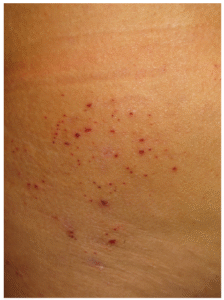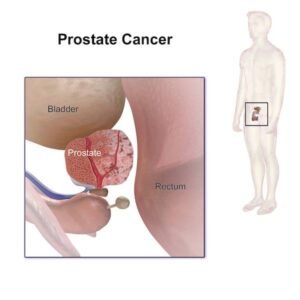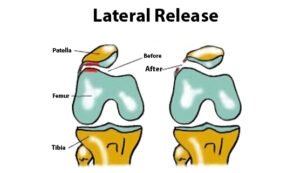Peripheral Neuropathy Treatment
Peripheral Neuropathy Treatment: A Comprehensive Guide
Estimated Read Time: 7 Minutes
Peripheral neuropathy refers to damage or dysfunction of the peripheral nerves, often causing pain, weakness, or numbness, typically in the hands and feet. Effective treatment focuses on symptom management and slowing or halting nerve damage progression. This guide explores medical treatments, at-home care, lifestyle modifications, and preventative strategies.
At-Home Care and Lifestyle Adjustments
If you’ve been diagnosed with peripheral neuropathy or are at risk, adopting certain lifestyle changes can significantly reduce symptoms and prevent further nerve damage. These strategies can also delay or prevent the condition altogether.
Managing Daily Discomfort
Home remedies can help alleviate nerve pain and improve your comfort level. You may need to experiment to find what works best for you, as symptoms vary between individuals. Consider these techniques:
-
Use a warm (not hot) heating pad on painful areas
-
Try a cooling pad (avoid direct ice contact)
-
Cover or uncover affected areas based on your comfort level
-
Wear loose-fitting clothes, socks, gloves, or shoes made from soft materials
-
Avoid irritating soaps or lotions
-
Apply soothing, non-irritating moisturizers
-
Keep painful areas clean and dry
Symptoms may respond differently across individuals, so customization is key.
Preventing Injuries from Numbness
Loss of sensation is a common issue with peripheral neuropathy and may lead to unnoticed injuries. To avoid complications like infections or chronic wounds, adopt the following practices:
-
Wear well-cushioned shoes and soft socks
-
Regularly inspect your feet, hands, and limbs for unnoticed cuts or bruises
-
Clean and cover any wounds immediately
-
Be cautious with sharp objects and kitchen tools
Managing Underlying Conditions
Peripheral neuropathy can result from various health issues, including diabetes, infections, or autoimmune disorders. Proper management of these underlying conditions is crucial in slowing or halting the progression of nerve damage.
Key Preventative Actions
-
Maintain healthy blood sugar levels if you have diabetes
-
Avoid alcohol, especially if neuropathy is alcohol-related
-
Follow a balanced diet with adequate vitamins—especially B12
-
Consider supplements if you’re on a restrictive diet (e.g., vegan)
Over-the-Counter (OTC) Treatments
Mild neuropathy pain can often be managed with OTC medications. While they don’t improve nerve function, they can reduce discomfort:
-
Topical lidocaine creams, patches, or sprays
-
Capsaicin cream or patch
-
Menthol-based creams like Icy Hot
-
Oral pain relievers: acetaminophen (Tylenol), ibuprofen (Advil), naproxen (Aleve)
Always consult your healthcare provider before starting any new treatment—even non-prescription options.
Prescription Medications for Neuropathy
When OTC remedies aren’t enough, prescription medications may be necessary, particularly for chronic or severe neuropathy.
Common Prescription Options
-
Gabapentin (Neurontin)
-
Pregabalin (Lyrica)
-
Amitriptyline (Elavil)
-
Venlafaxine (Effexor)
-
Duloxetine (Cymbalta)
In some cases, intravenous lidocaine may be used for severe pain. Additionally, if a vitamin B12 deficiency is the cause, prescription-strength supplements or injections can be effective.
Medical Treatments for Acute Neuropathy
Certain types of neuropathy, like Guillain-Barré syndrome or Miller Fisher syndrome, may require advanced medical interventions:
-
Corticosteroids
-
Intravenous immunoglobulin (IVIG)
-
Plasmapheresis (plasma exchange therapy)
These treatments target the underlying immune dysfunction causing acute nerve inflammation.
Surgical and Professional Therapies
Surgery may be an option if a specific structural issue—such as nerve entrapment or poor circulation—is worsening neuropathy. Surgical intervention can relieve pressure on nerves and improve symptoms.
Physical Therapy and Rehabilitation
Physical therapy plays a key role in both recovery and long-term management. Benefits include:
-
Strengthening weakened muscles
-
Improving balance and coordination
-
Teaching safe movement adaptations for sensory loss
Your therapist will create a customized plan based on your abilities and symptoms.
Complementary and Alternative Therapies
Some individuals find relief through non-traditional methods, often used alongside conventional treatment:
-
Acupuncture or acupressure to relieve pain
-
Massage therapy for muscle relaxation
-
Meditation and relaxation techniques to reduce stress-related pain sensitivity
Always speak with your healthcare provider before starting any alternative therapy to ensure it’s safe and appropriate.
Conclusion: Managing Peripheral Neuropathy Long-Term
Acute peripheral neuropathy may be reversible with the right medical intervention. Chronic neuropathy, however, requires an ongoing plan focusing on pain relief, injury prevention, and lifestyle management. While the sensation loss may not fully improve, with consistent care and professional support, many individuals maintain a good quality of life.













